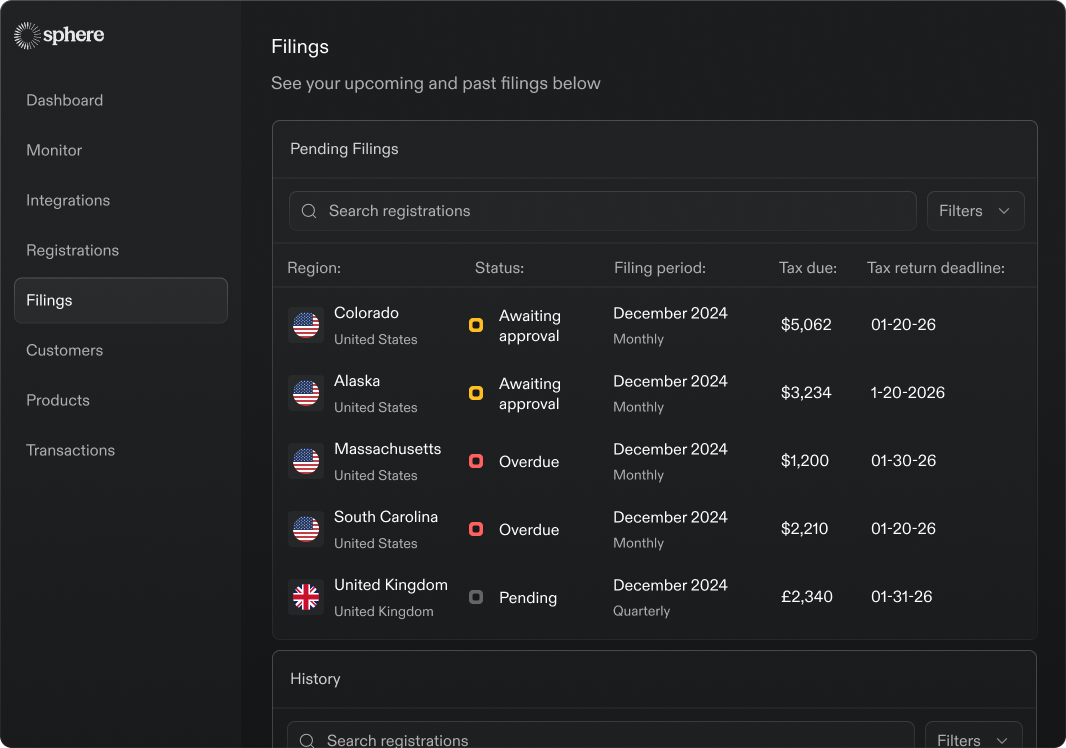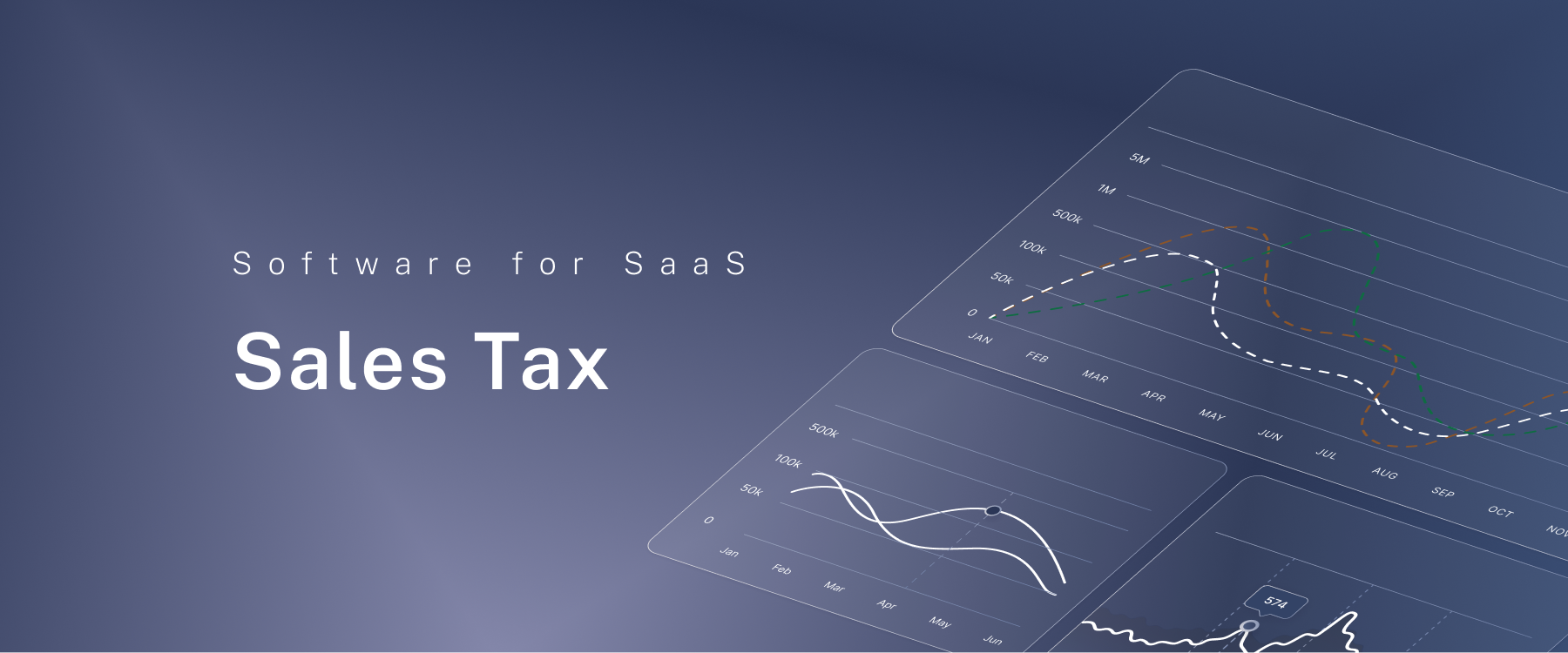.png)
If you run a digital platform or marketplace, then there’s a good chance you need to comply with DAC7 regulations. What are they?
DAC7 is a new European Union regulation that requires digital platform operators to report income data about their sellers to taxing authorities. Many marketplace operators, especially those based outside the EU, have been surprised to learn that these reporting rules now apply to them.
The directive went live in January 2023, with the first reports filed in 2024. And as EU authorities ramp up enforcement, compliance is only getting stricter.
This article will walk you through what DAC7 is, who it impacts, what needs to be reported, and how to prepare your business for compliance.
What Is the DAC7 Directive?
DAC7 is an amendment to the EU Directive on Administrative Cooperation. It’s a council directive that requires digital platforms to collect and report seller income data to EU tax authorities.
The DAC7 Directive’s goal is to increase tax transparency, standardize reporting across member states, and combat tax avoidance by ensuring all income earned through digital platforms is accurately tracked and taxed.
The directive is aimed at digital platforms that host third-party sellers. It establishes an automated exchange of information between individual EU tax authorities. That means that once your digital platform files a report in one EU country, that data is shared across all member states where your sellers live or are considered tax residents. DAC7 is part of a broader EU initiative to use technology to close tax and compliance gaps in the digital age.
What is a Digital Platform Under DAC7?
According to DAC7’s definition, a digital platform is any website, app, or online service that connects sellers to buyers to facilitate transactions, including:
- SaaS marketplaces – app stores, plugin marketplaces, etc.
- Ecommerce marketplaces – online retail platforms
- Gig economy platforms – rideshare or task app platforms
- Property rental sites – like vacation rental platforms
- Personal services platforms – platforms that facilitate tutoring, consulting, etc.
Most digital services that connect sellers with customers are considered digital platforms under DAC7. However, there are some exceptions:
- Payment processors that only handle payment transactions
- Advertising-only services that don’t actually facilitate sales through the platform
- Online directories that list services but don’t actually facilitate bookings or sales
If your digital platform handles all or part of a transaction, then it’s likely covered under DAC7.
What Does DAC7 Mean for Platform Operators?
Under DAC7, platform operators must collect, verify, and file seller data annually with EU tax authorities.
How this is done depends on where the business is located.
EU-based platforms must report directly to tax authorities in the same member state where they are established.
Non-EU-based platforms must register in at least one EU member state if they do business in the EU. Platform operators are allowed to choose their main jurisdiction for reporting, but must still collect and annually report data on all sellers using their platform across the entire EU.
This means that if you’re a digital platform such as a SaaS app store based in the US, but you have EU-based sellers using your service to facilitate sales, then you must comply with DAC7.
Who Is Impacted by DAC7?
Reportable Sellers and Relevant Activity
According to DAC7 regulations, “reportable sellers” are individuals and businesses that earn income through your digital platform. DAC7 focuses on four main categories of business activity:
- Sale of goods – physical or digital products
- Rental of immovable property – apartments, vacation rentals, commercial property
- Personal services – freelance work, consulting, tutoring, transportation services
- Transportation rental - car and boat rental, bike share, etc.
There are some exemptions for small sellers, such as property rentals only considered reportable if the seller exceeds 30 rental transactions OR €2,000 in total consideration during the year.
Member States and Residency Rules
Tax residence is the key factor when it comes to where a seller’s data must be reported. Under DAC7, a seller is considered a tax resident based on:
- Their registered address
- The location of their permanent establishment (if different)
- Where they primarily conduct business activity
This means that platform operators subject to DAC7 need to determine each of their sellers’ tax residences and report each seller’s income to the appropriate member state.
Non-EU operators, such as those based in the US, must choose a “lead jurisdiction.” This is the EU member state in which you’ll register and file your reports. Your lead jurisdiction doesn't have to be where most of your sellers are located. Instead, it's simply your reporting hub. From there, the EU's automatic exchange system distributes the data you report to the relevant member states.
DAC7 Reporting Obligations Explained
What Must Be Reported
Platforms must report detailed information about each seller and their transactions, including seller and transaction data.
Seller information:
- Legal name or business name
- Tax identification number (TIN)
- VAT number (if applicable)
- Other business registration number (if applicable)
- Primary address and any permanent establishment addresses
- Tax residence(s)
- Bank account details (IBAN or equivalent)
- Date of birth (for individuals)
Transaction data:
- Total gross income earned through your platform during the reporting period
- Any taxes withheld from payments
- Number of relevant activities (e.g., number of transactions or rental days)
If the transaction is a property rental, the following information is required:
- Property identification (address or listing ID)
- Property location
- Number of rental days
Reporting Periods and Deadlines
DAC7 operates on a calendar year basis, with reports due January 31st of the year following the reporting period.
Then, in February, after reporting is complete, EU tax authorities trigger an automatic exchange of information with other member states.
Missing the January 31 deadline can trigger penalties, so building a year-round data collection process is essential.
Due Diligence and Validation Requirements
Platforms are required to perform due diligence on seller-provided information. You can't simply collect a Taxpayer Identification Number (TIN) and call it a day. You must verify that the data is accurate.
Fortunately, the EU provides validation systems like VIES to verify value added tax (VAT) numbers and other systems to verify TINS.
You must also keep an audit trail of all verifications and double check seller data periodically to ensure nothing has changed. It’s best practice to update seller information at least once per year or when they change something, like an address or TIN, in your system.
If a seller refuses to provide required information or you can't verify their data, you may be required to close their account or withhold payments until they comply. Providing invalid information as part of DAC7 compliance may trigger penalties.
Does DAC7 Apply to US SaaS Vendors and Online Marketplaces?
Yes, DAC7 applies to US-based platforms if they facilitate relevant activity for EU-resident sellers.
As the platform owner, your physical location doesn't matter. What matters is the location of the EU sellers that you are facilitating in making their sales.
For example, you are a US-based app marketplace. Many of the sellers who use your marketplace to sell their apps are based in EU member states. Because you facilitate sales made by EU-based sellers, you’re required to comply with DAC7 reporting requirements.
It’s important to note that this does include digital-only sales. So whether you’re facilitating the sale of apps or SaaS software or downloadable sewing patterns by your EU-based sellers, you’re subject to DAC7 even if your business is otherwise completely US-based.
What Are the Penalties for Non-Compliance?
DAC7 penalties are designed to catch attention and compel compliance. That means they can be shockingly steep.
Each EU member state sets its own penalty structure, but then can reach €2 million or more in some countries.
This includes percentage-based penalties on unreported income and daily fines for ongoing noncompliance. Failure to comply can even end with joint audits by EU member nations and your EU operations suspended until you get compliance.
And beyond financial damages, this can result in reputational damage where sellers lose trust in your platform, especially if you have to go offline for a period of time to deal with compliance issues.
The EU is serious about enforcing DAC7. They feel they’ve identified a tax gap and are eager to fill it. With the first reports filed in 2024, authorities are now building their enforcement playbooks. Platforms that ignore compliance are likely to face consequences sooner rather than later.
How To Prepare for DAC7 Compliance
Assess Your Exposure
First things first, determine which of your platform’s sellers are EU tax residents and whether their activity qualifies as reportable under DAC7 rules.
If you have EU sellers conducting any of the four relevant activities (sale of goods, property rental, personal services, or transport rental), you likely have DAC7 obligations.
Once you have identified your EU-based sellers, evaluate what types of transactions they are doing and if they exceed DAC7-mandated reporting thresholds.
Review Data Collection and Systems
Next, set yourself up for success by capturing all information needed for DAC7 compliance in your seller onboarding process.
When sellers register with you, you should collect:
- Legal name and business name
- Tax identification number (TIN)
- VAT number (if applicable)
- Full address and tax residence
- Bank account details
- Date of birth (for individuals)
Also make use of the EU’s validation systems to check your sellers’ TIN and VAT numbers.
If your current system doesn't capture this information, you'll need to retrofit it and ask existing sellers to update their profiles.
Build a Scalable Reporting Process
From there, you’ll need to ensure that you continue to collect the information required by DAC7.
Create a standardized workflow that includes:
- Continuous data collection - capture seller and transaction data throughout the year
- Periodic validation - verify seller data and flag discrepancies at least annually
- Annual report generation - generate reports using XML or CSV format
- Filing and submission - file to your registered EU jurisdiction by January 31 of the year following the reporting period
- Scrupulous Documentation - create an audit trail should any EU tax authorities inquire for more information
Automation is critical. Manually compiling seller data and transaction records for hundreds or thousands of sellers is error-prone and time-consuming. Look for systems like Sphere that can generate the required report format automatically and integrate with your payment and accounting infrastructure.
DAC7 Reporting With Sphere (Coming Soon)
Need help with EU compliance? Sphere is building a DAC7 compliance feature launching in 2026. Sphere will automate seller data collection, validation, and annual reporting.
Sphere already handles VAT and sales tax compliance for global SaaS and marketplace businesses. DAC7 is a logical next step that will extend the same automation to platform reporting obligations, so you can manage all your indirect tax compliance in one single platform.
If you're a platform operator preparing for DAC7, you can request early access or stay updated on our rollout timeline by reaching out to our team.
Staying Ahead of EU Regulations
DAC7 is just one part of a larger trend toward data-driven tax transparency in the EU.
It joins VAT on digital services, e-invoicing mandates, and other indirect taxes, as a way for EU member states to harmonize the tax system and ensure that all taxes are being properly collected.
Sphere is built to be your EU tax and compliance partner. Whether you're managing VAT, GST, sales tax, or platform reporting, Sphere's AI-powered compliance platform simplifies what was once a manual, error-prone process.








.png)

.png)






